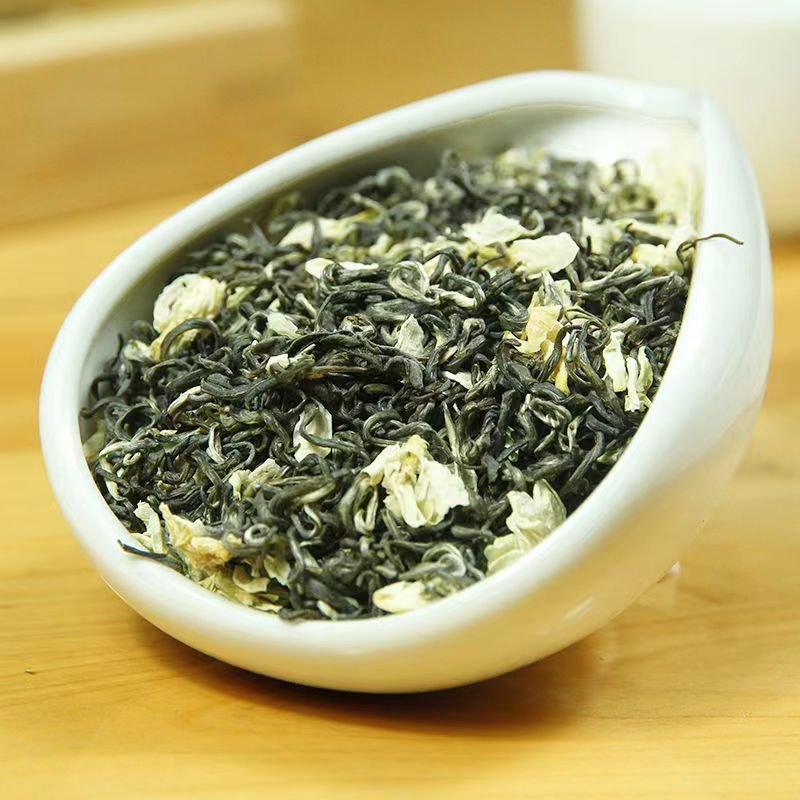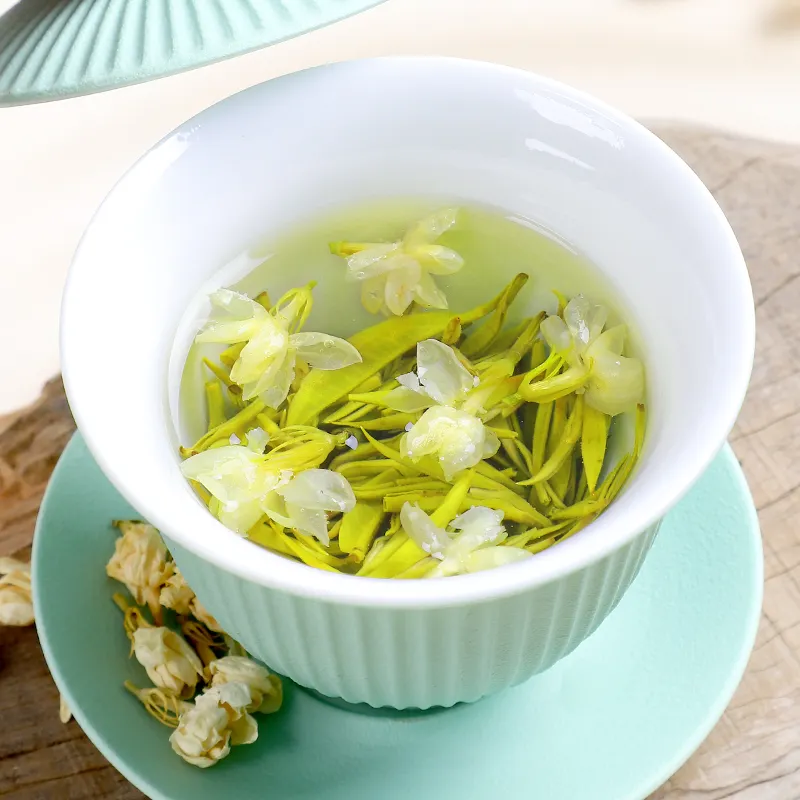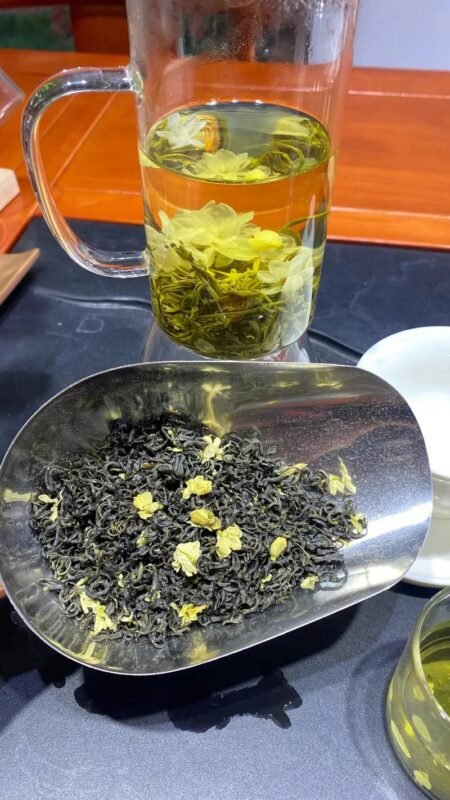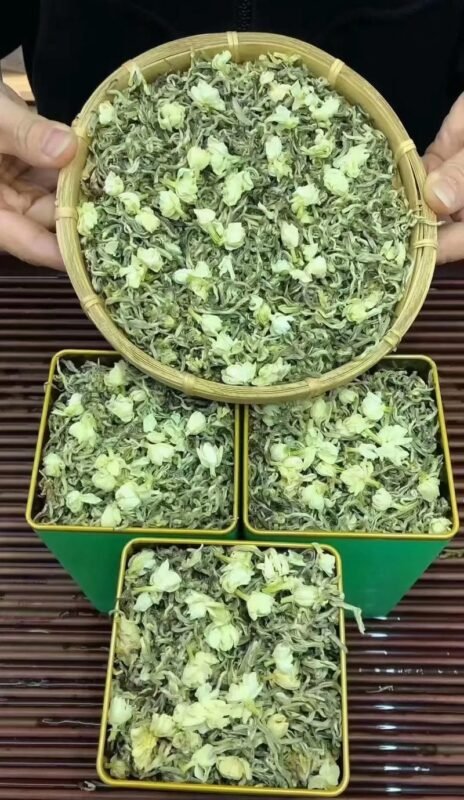Jasmine tea, a type of flower tea originating from China, is made by blending green tea or black tea with jasmine flower buds, allowing the tea to absorb the fragrance of the jasmine flowers. However, jasmine tea itself is not a type of green tea or black tea, but rather a distinct tea category.
First, let’s explore the process of making jasmine tea. In the process of making jasmine tea, high-quality green tea or black tea is usually chosen as the base. The tea leaves are layered with jasmine flowers, allowing the tea to absorb the fragrance of the flowers. This process is usually repeated several times until the tea fully absorbs the fragrance of the jasmine flowers, resulting in a unique floral taste. The process of making jasmine tea gives it a rich taste of tea itself, while also imparting a fresh fragrance of jasmine, resulting in a unique quality characteristic.
Next, let’s take a look at the benefits of jasmine tea. Jasmine tea has many beneficial effects on the body, such as invigorating the mind and spirit, soothing emotions, clearing heat and detoxifying the body, promoting smooth breathing and clearing the mind, and promoting digestion and appetite. Regular consumption of jasmine tea can invigorate the mind and spirit, helping people maintain a good state of mind. Jasmine tea is one of China’s ten most famous teas, made by picking jasmine flowers in full bloom in the spring and growing them with tea leaves together. It has the fragrance of spring flowers and the freshness of tea leaves, making it a popular tea with a sweet taste. Regular consumption of jasmine tea is beneficial for women, not only for beautifying the skin and whitening the complexion, but also for resisting aging. At the same time, jasmine tea has the function of soothing emotions, which can alleviate anxiety, depression and other emotional problems. In addition, jasmine tea has the benefits of clearing heat and detoxifying the body, promoting smooth breathing and clearing the mind, and promoting digestion and appetite, which have a positive effect on improving human health.
Jasmine tea also has some special medicinal value. The jasmine flowers in jasmine tea contain a variety of volatile oil components, such as benzyl alcohol, jasmine volatile oil, and linalool, which have certain pharmacological effects on the human body. For example, jasmine tea can relieve discomfort in the stomach and intestines, and has a certain effect in relieving stomachache and bloating. In addition, jasmine tea has an antibacterial and anti-inflammatory effect, which can help prevent colds and other diseases.
Of course, jasmine tea is not a panacea, and its effects are limited. When drinking jasmine tea, we should pay attention to moderate consumption and avoid overconsumption. At the same time, jasmine tea is not suitable for all groups of people, such as pregnant women, lactating women, children, etc. When drinking jasmine tea, these groups of people need to be cautious.
Brewing Method: The water temperature for brewing flower tea is suitable at 80-90°C. The ratio of tea to water is usually 1:50, and the brewing time per infusion is 3-5 minutes.
Jasmine tea is a reprocessed tea made from green tea. It has high moisture content and is prone to spoilage. Therefore, it should be stored in a dry, cool, odorless, well-ventilated environment to prevent moisture.






